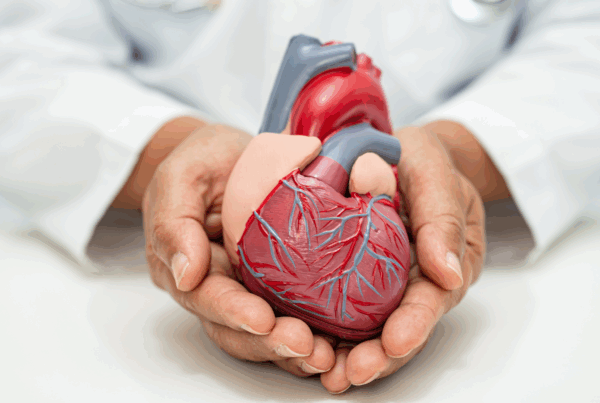Atrial Fibrillation or AF is a heart condition in which your heart beats faster and irregularly.
When you are resting, your heart rate should measure between 60 and 100 beats per minute. If you’re unsure how fast your heart is beating, it is easy to check by measuring your pulse rate.
Someone who has atrial fibrillation may have a pulse rate much higher than the average resting rate.
In this article, we look at what atrial fibrillation is, the symptoms, what causes it and how it can be treated.
If you’re worried about your heart rate or that of a loved one, consult with one of our cardiologists today. We are based in Warrington, near Manchester, Liverpool and Cheshire.
More than 1 million people in the UK have atrial fibrillation (AF)
The heart has four chambers. When the electrical impulses in the top two chambers do not fire steadily and regularly, instead twitching or quivering randomly, you may experience a fast and irregular pulse or heartbeat. This can be described as palpitations.
Some people experience this all the time, and for others, this comes and goes. Atrial fibrillation is not a life-threatening condition, but someone with AF is at four- or five-times greater risk of a stroke or blood clots.
Some people experience no symptoms at all
In some cases, a person may not know they have this condition because they are asymptomatic. For those with symptoms, they typically include:
- Irregular heart rate
- Fast heart rate
- Dizziness
- Tiredness
- Shortness of breath and anxiety
- Chest pains
If you think you may be at risk of AF, consult with one of our cardiologists closely located to Manchester, Liverpool and Cheshire.
What causes atrial fibrillation?
There is no one known reason for this condition. However, heart damage of this kind can be caused by several factors, including:
- High blood pressure
- Heart disease
- Diabetes
- Heart valve disease
- Obesity
- Drinking too much alcohol
- Physical inactivity
- Smoking
- Atherosclerosis
- Stress
- Heart surgery
More men than women experience AF, and it is more common in older people, although it can affect adults of any age.
It is diagnosed in several ways, including a non-invasive ECG (electrocardiogram) to measure your heart rhythm and rate, blood tests and an echocardiogram.
Can atrial fibrillation be treated?
If any of the tests find that you have atrial fibrillation, your cardiologist will set out a course of treatment for you.
There are several treatment options your cardiologist may discuss with you. They include:
1. Catheter Ablation
This is when a thin tube is passed through your groin to the area of the heart that’s causing the AF. Once this area has been located, it is destroyed using radiofrequency. It can take anywhere between 15 minutes to several hours, and you will either have a general anesthetic or be sedated.
2. Medication
You may be prescribed medicines to control your heart rate and rhythm and reduce the risk of a stroke. Other types of medication that may be prescribed include beta-blockers.
3. Having a pacemaker fitted
This is a device that’s roughly the size of a matchbox. Around 1.14 million people worldwide have a pacemaker, which is predicted to rise to 1.43 by 2023.
A pacemaker can help regulate your heart rate and help the four chambers of your heart beat at the same speed.
4. Cardioversion
One way of restoring your heart’s normal rhythm is to perform a cardioversion procedure. This is when the heart is given a controlled electric shock, so your heart rate returns to a regular pattern.
In the case of any potential treatment, your cardiologist will discuss with you the best way forward.
Contact us If you are looking for a Cardiologist in Manchester, Merseyside, Cheshire or elsewhere in the Northwest and are considering tests for atrial fibrillation, then look no further. Venturi Cardiology is based in Birchwood, Warrington, in the heart of the Northwest, with easy access to all of the aforementioned areas. So get in touch with our friendly experts at Venturi Cardiology. Venturi looks after patients of all ages, helping them to manage their heart health more accurately.












